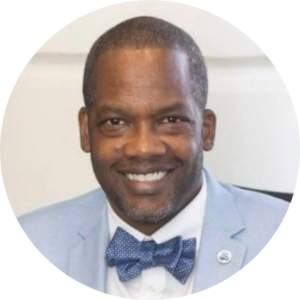New Member Spotlight: Tennessee State University
UIDP welcomes Tennessee State University as a new member organization. We spoke with Quincy Quick, associate vice president for research and sponsored programs and chief research officer. Quick shared his vision for Tennessee State’s research enterprise and why he supports HBCU Engage.
UIDP: Tell me a little about Tennessee State’s goals for sponsored research engagement—the big picture.
Quick: From a big-picture standpoint, one of my goals for the institution is to eclipse the $100 million mark in total awarded grants and contracts. From a societal standpoint, we want to broaden our capacity and our capabilities to perform and deliver application-based research here at Tennessee State, so the research being done will have a broader societal impact and benefit.
One of the functions UIDP offers is to align you with corporate entities whose whole goal is also to make an impact on society. All of that requires application-based research approaches.
As academic researchers, we want the best and the brightest idea. But sometimes the best and the brightest idea is not what society needs. Sometimes, it just needs something practical that can be used and integrated by society at large. UIDP’s role and function helps put us in that space.
UIDP: What are some of the challenges you and other R2[i] HBCUs face in the research space?
Quick: We get that question asked a lot as HBCUs. I think all research institutions have issues and problems, and they’re all probably very similar. With the R2 HBCUs, most are in a unique situation geographically. Our locations are typically in urban, metropolitan settings, and that’s actually a plus for us. Specifically, in terms of challenges, we just don’t have enough funding to support capital projects to improve our existing research infrastructure and build more research space. That’s true across the board.
At Tennessee State, we need more physical research space, but we’re feeling upbeat and positive about the future. The state has recently announced that it’s going to allocate $250 million to improve facilities at Tennessee state, and that includes research facilities. So we will have some of those needs addressed here within the next year.
Human resources, human capital—those are more administrative infrastructure challenges that we also face, like other HBCUs. But with this infusion of capital, we’re going to address some of our needs. Our cyberinfrastructure, for example, needs to be improved, along with some of the other physical infrastructure for research.
In this office, we’re trying to improve the logistics of the grants accounting mechanisms. We have those challenges, and other HBCUs have those challenges as well.
UIDP: What else should we know?
Quick: Tennessee State University is in Nashville, one of the fastest-growing metropolitan cities in the United States. We are an HBCU in the city of Nashville, where we have, within a one-mile radius, two other HBCUs, Meharry Medical College and Fisk University. So we have a unique ecosystem here in Nashville with HBCUs, and we’re surrounded by primarily white institutions that we partner with—Vanderbilt University and the Vanderbilt University Medical Center, Bellmont, and Lipscombe.
So Tennessee State is in a unique, diverse environment as it relates to education and to an economically viable city. On top of that is all we’re doing from a research standpoint. All those things put us at an advantage when you’re talking about engaging in research and how that research can be beneficial to corporate entities.
We are also an 1890 institution, and the 1890 Universities Foundation is sponsoring HBCU Engage. We’re an urban land grant right in the middle of this major metropolitan area, but with a predominantly agriculture presence at Tennessee State in a metropolitan, urban area. That gives us a really different footprint, not just among most HBCUs, but most academic institutions in general.
[i] The Carnegie Classification of Institutes of Higher Education is a framework for recognizing and describing research programs at U.S. universities and is developed from empirical data on colleges and universities. R2 Carnegie class universities confer doctorate degrees and have high research activity. https://carnegieclassifications.acenet.edu/classification_descriptions/basic.php
Listen to the full interview on our podcast.
Quincy Quick on HBCU Engage
Quick will speak at HBCU Engage 2023 in Nashville, Tenn., on growing innovation ecosystems. Here’s his take on the event and its value for HBCUs.
UIDP: Tennessee State stepped up to co-host HBCU Engage. What are your goals for this event, and how will it advance your institution’s goals?
Quick: My message, since I’ve taken over this role, is partnerships, partnerships, and more partnerships. Our goal with UIDP is to help increase and maximize our partnerships, not just with corporate entities but also with other academic institutions and government agencies. What you find in government agencies is that there are all these different subagencies that are nested in. We want to take advantage of this environment that UIDP creates to help us increase our partnerships across the board with academic, government, and industry organizations.
UIDP: Why should other HBCUs get involved and attend HBCU Engage?
Quick: What this platform is going to do is afford us the opportunity to really engage with corporate and industry partners, but also—and this doesn’t get talked about enough—HBCUs have a unique history, and as a part of that early history, we were really partnering with each other. We really had no choice. But as time has gone on, HBCUs have gotten out of the business of partnering with each other. So, in addition to partnering with corporate and industry partners, this platform will help HBCUs further broaden our collaborations with each other. This gives us another forum, another platform, that we can use to form more partnerships and broaden our partnerships with each other.



